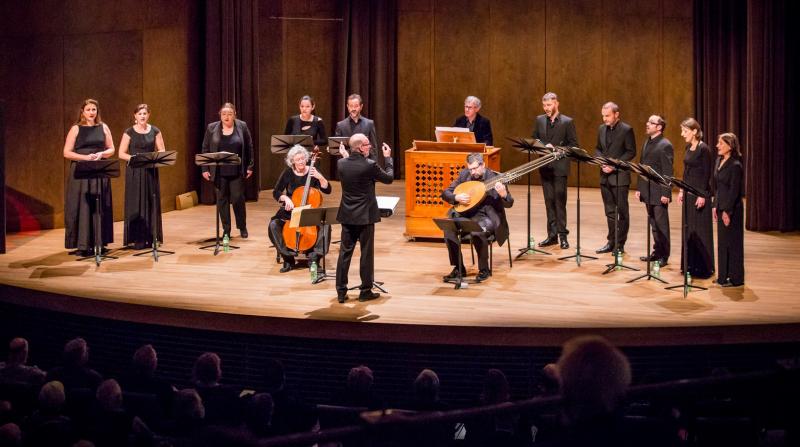Bach / Scarlatti
Jean-Sébastien Bach
Claudio Monteverdi
Domenico Scarlatti
3 musicians (cello, theorbo & organ)
Joël Suhubiette, conductor
Both born in 1685, Johann Sebastian Bach and Domenico Scarlatti, although reunited in this program, did not follow the same path. J. S. Bach, a sedentary and deeply Lutheran composer, spent his whole life in Germany and was barely known in Europe in his lifetime. D. Scarlatti, born in Naples, moved to Venice and Rome, traveled through Tuscany, Portugal and eventually Spain, where he will spent his last years.
Within his vocal production, the Stabat Mater certainly is the most ambitious and famous work by Scarlatti. It is also very distinct, in many aspects, from the rest of his music. It is one of the most important sacred Italian works of the XVIIIth century and Scarlatti’s most complex composition: its length, its irresistible dramatic depth, its stylistic unity along with a large variety of vocal timbres make it unique in many ways.
Both funeral motets by Bach, Jesu, meine Freude and Komm, Jesu, komm are amongst his top a capella works.
Each part of this program is opening with works from their respective prestigious precursors: J.H. Schein and C. Monteverdi.
PRESS REVIEWS
"We have a remarkable example of a perfect symbiosis between the singers, the continuo, and Joël Suhubiette, whose direction is energetic, clear, distinct, precise, and dynamic; each theme, each section is finely crafted, reaching its peak in the almost ideal interpretation of the cadence."
Lyriqueinfo
"Joël Suhubiette provides a perfectly fiiting collective dynamic and harmonious drama to his ensemble. The Jacques Modernes master the complex and refined art of affetti, dissonance, and discreet pathos, leading up to an Amen with sharp features and vibrant colors."
Diapason

